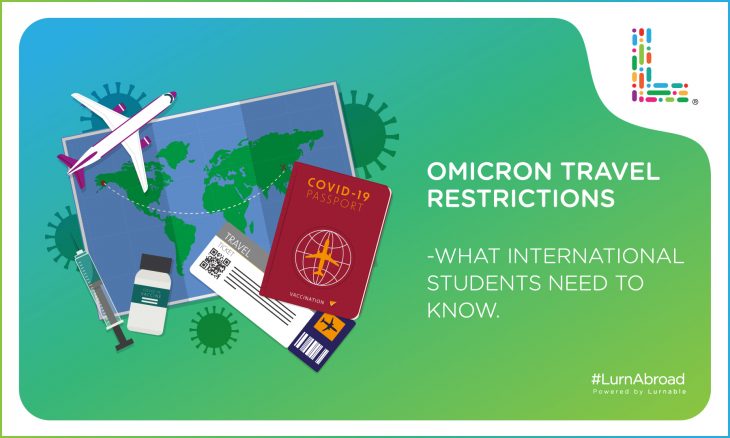The omicron variant of the coronavirus has brought a fresh set of challenges for the world. It emerged out of nowhere when the virus was apparently under control. Once again, uncertainty prevails as the new variant affects life, work, and travel. International students are going through a tough time as many countries have new rules and restrictions on international travel.
USA
Since Omicron is more infectious than the previous variants, governments are taking strict measures to curb its spread. Several countries stopped flights from high-risk destinations initially. They also imposed restrictions on travellers from other parts of the world. As a study abroad aspirant, you need to keep track of the evolving regulations and fine-tune your plans accordingly. Here are the latest updates you must know about.
The American government banned travel from eight countries from the African continent from 6th December. Travellers from other countries also have to abide by some restrictions. The testing time frame is changed, and everyone landing in the US has to provide the report within one day of the departure, regardless of their nationality or vaccination status. They also have to be fully vaccinated. The new rules apply for vaccinated Americans and permanent residents.
CANADA
Canada has no travel ban on foreigners, except on people from a few African countries. However, international students planning to travel to Canada need a pre-entry test. They have to provide a COVID-19 negative molecular test report. Alternatively, a previous positive test report between 14 and 180 days ago also works. The valid period will be between 10 and 180 days ago, starting January 15, 2022.
UK
The UK is one of the worst-hit countries, so the authorities are on a high alert. But the recent surge made the government give up on the travel red list as it does not appear to be effective for curbing the incursion of the Omicron variant from abroad. However, travellers are mandated to provide a PCR or a rapid lateral flow test report a maximum of 48 hours before departure.
FRANCE
France has categorised countries into scarlet red list, red list, orange list, and green list according to the status of the infections. Your chances of entering French territory depend on this classification. Fully vaccinated travellers have to provide a negative PCR or antigen test report within 48 hours of departure. They have to take a Random antigen or PCR test on arrival. People who aren’t fully vaccinated have to follow the same guidelines. But they also need to validate pressing grounds of travel compulsorily.
AUSTRALIA
Australia has decided to go ahead with its border reopening decision despite the growing concern of the Omicron variant. While it is good news for international students, there are some norms you have to know. According to the latest guidelines, all travellers must give a negative PCR report within three days of travel. Further, they will also have to provide traveller declaration forms stating their vaccination status and confirming awareness of the public health requirements of the relevant state and territory.
NEW ZEALAND
New Zealand has taken the most stringent stance against the virus throughout the pandemic. The country has only a single confirmed Omicron case as of now, but it is still closed for international students. The New Zealand government plans to open its borders from April 2022, and students are waiting with bated breath. If the situation resolves by April, students can hope to fly to New Zealand for their studies.
Since travel regulations are subject to frequent changes according to the prevailing status of the virus, international students must keep a close watch on them. You must check the details before finalising your plans. Hopefully, things will change for the better in the foreseeable future and travel plans for international students will reach fruition.

If you are considering studying abroad why don’t you discuss your prospects and opportunities with experts at Lurnable’s dedicated study abroad counselling division LurnPathways?





